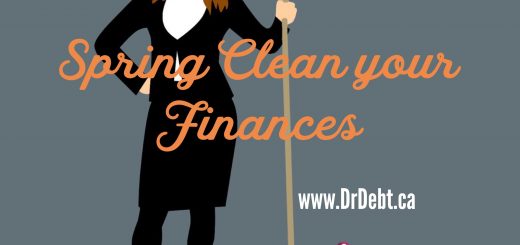How prepared are you to survive an increase in interest rates?
We have been enjoying record-low interest rates for years. And we are getting a little spoiled. And a whole lot complacent.
It is inevitable that interest rates will rise. Everything is cyclical – it goes up & down & up & down. Nothing ever stays the same.
So here we are living a life like nothing will change. Not necessarily by choice, but in many cases by default, due to a lack of planning or of paying close attention. We do tend to live from an optimistic perspective, at least I know I do, and there is so much right with that. But it does come with a warning…
Always, ALWAYS factor in the unexpected. Something could (will?) very well change, at some point in your life, making it more difficult for you to live the life you have been living. It’s not a bad idea to have a Plan B (in this case that would be some type of savings or net worth) to fall back on.
I was prompted to write this post as a result of the stories hitting the airwaves over the past few weeks regarding the bank’s revised lending practices when it comes to buying a home (you now need a down payment), refinancing your home (making it more difficult to take out the full equity amount) and mention of the Bank of Canada raising their interest rates.
My thoughts: the tighter lending is meant to open up the ability to raise interest rates at some point because, at the moment, the banks are likely terrified of the repercussions of doing so. So. Many. People. Will. Collapse. Financially. Making Bankruptcy or some type of debt settlement their only option. No one wants to see that happen.
You might ask yourself, why is a Licensed Insolvency Trustee trying to help us avoid bankruptcy. Isn’t it good for your business? Well, yes, yes it is. But don’t worry. I can save the majority of you and still have enough business to stay employed (scary isn’t it?) I mean, seriously….the financial mess we have ourselves into will keep me and others in our industry employed well throughout our lifetime (not baring a natural disaster of course, and I’m not convinced that won’t happen before we get ourselves finally stable. Maybe that will be the THING that sets us back on the right track…*shudder”…a disturbing thought). Let’s go back to the more exciting topic of debt and budgeting (see how I did that, took you to a darker place so debt and credit seems like a picnic…lol…ok, not quite a ‘picnic’!)
The results of a survey were released recently whereby respondents were asked about their views on how financially stable they were and their ability to handle an interest increase. It seems that we (consumers) are starting to feel the pinch following The Bank of Canada’s two interest rate hikes last year and subsequent rate hikes from some of the larger banks that followed.
Below is a summary of the responses highlighted along with my comment on each…
The full article can be read here: One in three Canadians can’t cover monthly payments amid debt trap survey
33% of Canadians* admitted to being stretched beyond their means on a monthly basis
*represents the percent of respondents
That represents 1/3rd of the population. Doesn’t that scare the beejeesus out of you? I would consider this is HUGE wake up call to how off-track we are in the way we are living our lives financially!
40% of Canadians admitted they regret the amount of debt they have taken out in their lifetime
I’ll admit, I am surprised that this percentage isn’t a bit higher. But my guess is that a large percentage are still “managing” their debt and haven’t felt the true impact of their financial decisions quite yet.
42% of Canadians feel that they will be in financial trouble if rates rise much higher
So….my fine folks who represent this 42%…what are you doing to mitigate this risk? Please let the answer be “something” versus “nothing”. Everything from cutting expenses, to tracking your spending, to committing to stop using credit and paying off debt are acceptable answers! (fingers crossed)
48% of Canadians said they are $200 or less away from not being able to meet their monthly financial obligations.
YIKES! Holy Toledo! $200! All that’s needed to tip the scales ‘out of your favour’ is a slight decrease in income or a few fixed expenses going up. ALWAYS spend less than you make. That’s a good start. And break your dependency on credit. <– that’s and even better start.
Canadians have an average of $631 left for discretionary spending once all of their monthly bills are paid.
It wasn’t completely clear to me if groceries and gas were part of this figure or not. If they are not, I am thinking $631 a month would do me just fine for other expenses. If I have to get groceries, gas and every other thing with this, well then, I am in trouble!
Almost half felt that they would not be able to cover all living expenses over the next 12 months without going into further debt
And therein lies our attitude about credit…that we need it to live. A BIG, GIANT recipe for disaster. Once you get into relying on credit it is so very hard to get out of it. If the preceding statement rings true for you, please, please, please take a look at your overall financial picture and start making changes to get on track financially.
One more little tidbit I found interesting from the Blue Monday Survey:
One-in-four Canadians (25%) do not have funds to escape the winter doldrums through a vacation.
And this statement, I think, uncovers the reason we are so in debt as a nation. 25% of respondents are blue because they cannot go on vacation. Remember when taking a vacation was rare. If you had one every year you were the oddity. Now, if you do not have one every year, you are the oddity. Because we live in a have-more, do-more, be-more, spend-more society. There are so many things you can do to beat the blues that don’t involve spending thousands of dollars to travel away from home. But you won’t see those suggestions on the TV or hear them on the radio, because credit thrives on us “wanting” more than we can afford.
The final statistic that I want to share is from an additional survey that was included with the article asking readers to answer this questions:
Who do you hold responsible for Canadians who borrowed too much money?
Consumers? … The Bank of Canada? … Lenders?
The respondents answered … (71% (Consumers – Us!)… 9% (The Bank of Canada) & … 20% (Lenders)
Of course we have to hold ourselves responsible! We are the ones who ultimately make the financial decisions. Having said that, financial illiteracy is a real thing and there are many Canadians who haven’t been taught effective ways to manage money, or make wise financial borrowing decisions, and many who have always relied on the banks and lenders to help them make better decisions.
Got some news for y’all…they (Financial Institutions) are in the business of making money and operate on statistics and percentages most of the time, neither of which take your personal financial situation into account (disclaimer: there are some great lenders out there who are the exception to the rule)
Just because you qualify for a specific loan amount doesn’t mean that’s the right amount for you.
So while I get why 20% would say the Lenders are responsible, it’s a little like saying the food industry is responsible for our weight gain, or dating sights are responsible for our failed marriages. Do they influence our decisions? Absolutely. The temptations will always be there, it is up to us to navigate them responsibly.
My closing statement is this. If you are seeing/feeling the warning signs and you know that a decrease in income or an increase in expenses would severely stress your financial situation, please, please consider your options now and take steps to avoid a major disaster from happening.
Wishing you Happy Healthy Finances!
Mary Ann Marriott
aka Dr Debt






